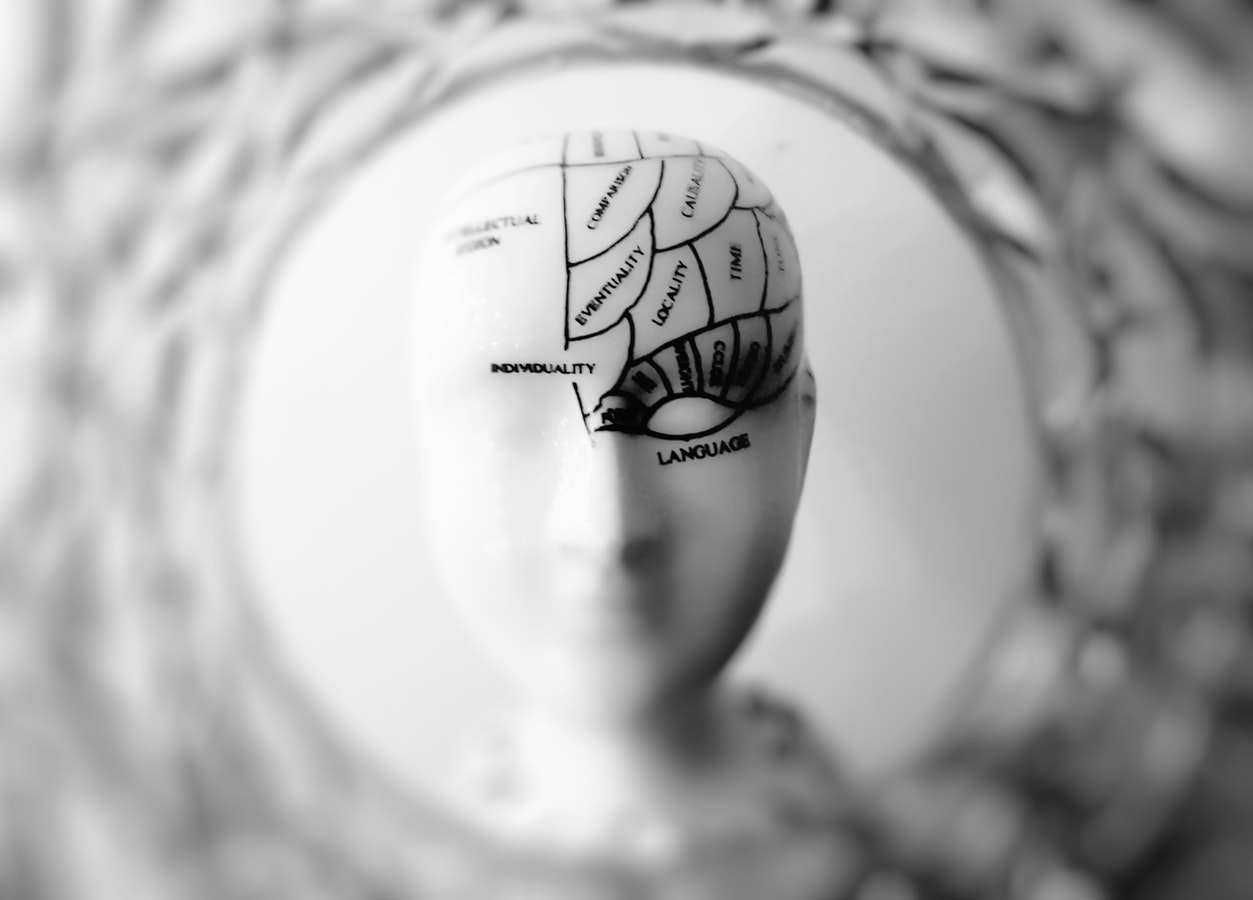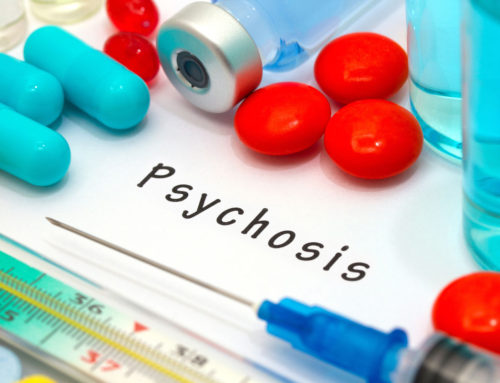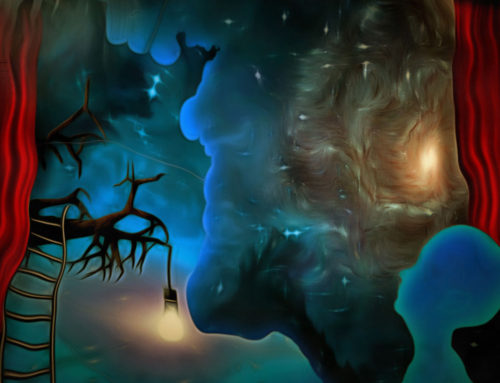When reading about mental health issues, a word that pops up from time to time is “psychotic.” What does it mean to be psychotic¹? Is it a mental illness or just a kind of description of it? Is psychosis something someone has or is it the result of other conditions?
Psychosis isn’t an illness itself. Rather, it’s a symptom of an underlying illness or condition that results in a serious, even profound disruption to the way people perceive reality and their relationship to it. “Reality” in this sense is not some complex philosophical concept. Reality is our day-to-day understanding of the world, ourselves and how things work together to make up our shared human experience.
Psychosis happens when a person’s thoughts or behaviors, usually both, are no longer in sync with reality and involves a person hearing, seeing or sensing things that are not real. A person with psychosis will often have thoughts and thought processes that are unusual, distressing or incongruent with reality. People typically describe psychosis as being scary, even terrifying.
Symptoms of Psychosis
- Psychological. Seeing and hearing things that aren’t there. Hearing voices ordering the person to take destructive actions (command hallucinations), Paranoia, mania, beliefs of persecution, grandiosity.
- Cognitive. Delusions and delusional thinking is common. Delusions are beliefs in things that are demonstrably untrue². Usually these beliefs are unshakeable. Other symptoms include the belief that one’s thoughts can been seen by others or that others are injecting their thoughts into the receiver’s minds. Depersonalization, the feeling that one is detached from one’s body and thoughts, is also common.People may become highly suspicious and secretive.
- Behavioral. A person’s behavior becomes disorganized. Hypervigilance, agitation, hostility, repeating nonsense words or rhyming words (word salad and clanging, respectively), insomnia or complete inability to sleep, extreme self-isolation, repetitive movements.
- Mood. Symptoms are often contradictory. Hostility, hyperactivity, hypervigilance, apathy, hostility. Mood fluctuations are common, but some will experience a blunting of affect, a lack of variance in one’s mood.,
- Speech. A person may stop stop speaking altogether or speak incoherently.
Psychosis may come on rapidly, sometimes caused by accidental ingestion of a toxin or deliberate consumption of an illicit substance, in which case it will pass within a few hours or several days. A person may also become psychotic due to an illness, which also passes.
Psychosis can sometimes accompany common psychological issues. Although it’s rare, a person with profound depression may lapse into psychosis. Postpartum depression sufferers also may struggle with psychosis. However, the most common condition in which a loss of reality occurs is schizophrenia.
Psychosis can’t be treated with psychotherapy alone. It is an emergency condition and must be treated as such. However, once a person is free of that psychosis, psychotherapy can be a great benefit for helping a person to adjust to their psychological disorder. Many disorders that cause a person to lapse into a break from reality can be treated with ongoing psychotherapy.
Damaris Aragon, ARNP, BC provides a full spectrum of mental health care to people in Spokane, Washington and surrounding areas. She focuses on providing personalized, compassionate care that adheres to current evidence-based standards. Reach out to Damaris through her contact page or calling 509-342-6592.
¹ https://www.nimh.nih.gov/health/topics/schizophrenia/raise/what-is-psychosis.shtml
² https://my.clevelandclinic.org/health/diseases/9599-delusional-disorder



